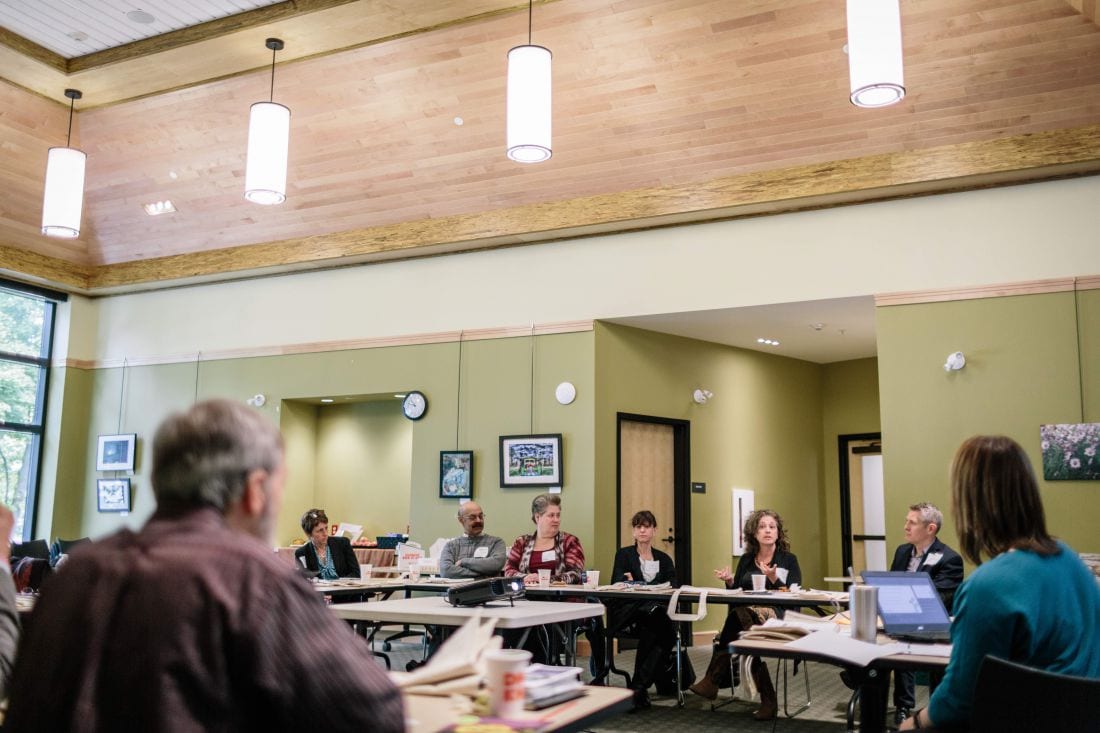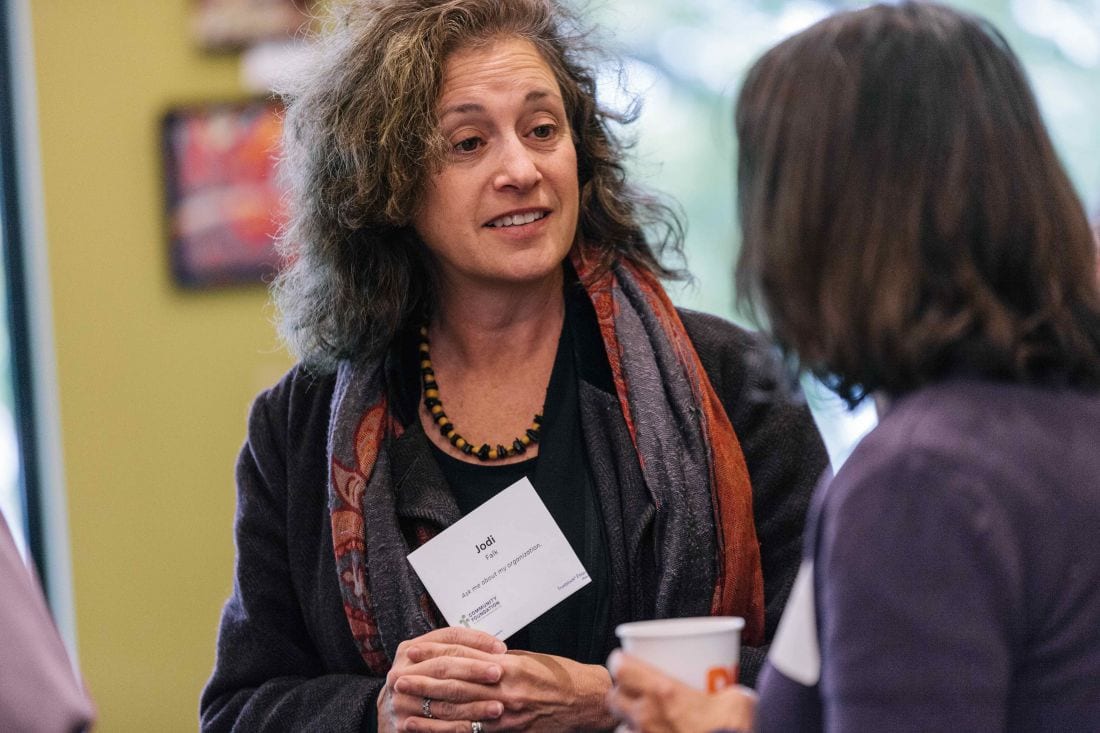November 21, 2019 Community Stories
Food and Shelter Grantees Serve Up Dignity, Respect

Insecurity nagged Lee Anderson, the new volunteer cook at MANNA Soup Kitchen in Northampton.
Five days per week, Anderson and other volunteers provided free, hot meals at St. John’s Episcopal Church to people (guests) without enough to eat.
He wondered…were his meals as good as those of his predecessor, Joan?
Anderson asked the guests what they missed most about Joan. Her raviolis? Her salads?
Their answer: “Joan always sat and talked with us.”
“That was a real wake-up call for me,” said Anderson. “It wasn’t even the food! Isolation is a core problem when someone has lost their job, becomes homeless or has a catastrophic expense that pushes them to the edge of society. When you’re alone, your world and options get smaller and you start living in a bubble. And you stop dreaming.”
MANNA tries to break down that isolation while providing nutritious meals. During daily “community meals,” guests, volunteers and donors eat together. The buzz of conversation is music to Anderson’s ears.
A $7,000 grant from the Community Foundation of Western Massachusetts (CFWM) made MANNA’s welcoming space even better. By outfitting a renovated kitchen at St. John’s with new countertops, stainless steel tables, two sinks and a convection oven, visitors to the soup kitchen will soon eat in a sunlit, sparkling clean space where food cooks 30% faster thanks to the new oven (“It makes a big difference when we’re trying to serve 100 people at once,” Anderson said).

In 2019, MANNA was among 14 grantee organizations awarded a total of $90,000 to fund items including flooring, stoves, freezers, shelving, and refrigerators—thanks to an anonymous organization that contributed the dollars through the CFWM to benefit Western Massachusetts nonprofits.
After receiving the extraordinary gift, CFWM set out to re-grant the dollars to organizations providing food and shelter to area residents.
According to Senior Program Officer Sheila Toto, CFWM sought to meet some of the most immediate needs of local “unsung heroes” that provide vital human services. And, in a new twist to their grantmaking, CFWM asked area residents to nominate a deserving nonprofit. It was a way to hear directly from the community and engage people less familiar with the work of their local community foundation, said Toto.
A call for nominations in mid-2019 yielded an astounding 1,100 online submissions.
Lee Anderson, who also serves as MANNA’s treasurer, stated, “The nomination process was really rewarding since it opened up the opportunity for people to help us who usually didn’t have the means to give money—our guests and volunteers. They felt respected to be asked to go to the website and nominate us. The whole process brought us together.”
Another grantee, Rachel’s Table, a program of the Jewish Federation of Western Massachusetts, received $7,300.
Serving Hampden, Franklin and Hampshire counties, the organization marshals a small army of volunteers to regularly pick up food from 60 food donors and deliver it to 45 area agencies. Wherever food is still good but might go to waste—at supermarkets, restaurants, bakeries caterers, farmer’s markets and farms—it is picked up and delivered to agencies who nourish people who are food insecure.

According to Jodi Falk, Ph.D., director of Rachel’s Table, food insecurity refers to a lack of consistent access to food–people who are unsure of where they will get their next meal. About 10% of residents in our three-county Western Massachusetts region are food insecure, she said.
Thanks to food deliveries by Rachel’s Table, agencies provide food to older people on fixed incomes, people recovering from addiction, victims of domestic violence, families without stable homes, and many others.
Through Jewish Family Services, Rachel’s Table even provides kosher food for people who practice the Jewish dietary laws of kashrut (kosher). Falk noted that kosher food tends to be more expensive, an added burden for people facing hunger.
She explained, “Being kosher becomes a matter of identity—it’s one of the ways that you can live your religion. And if you can’t do that because of your finances, it’s kind of a double pain. You really can’t be who you are.”
Grant funds from CFWM covered the cost of freezer blankets, food thermometers, scales, and a convertible hand truck—allowing volunteers to drive further distances to pick up larger quantities of food and guarantee its safety.
CFWM brought the grantees together in October to share ideas and information. Reflecting on the group, Sheila Toto said, “Just as important as the services they provide is how they provide them. And treating their clients with dignity and respect is central to what they do.”
The grantees are:
- Craig’s Doors (Amherst)
- The Community Survival Center (Indian Orchard)
- Lorraine’s Soup Kitchen and Pantry (Chicopee)
- Franklin County Community Meals Program (Greenfield)
- Wales Community Pantry (Wales)
- Good Neighbors (Charlemont)
- Bethlehem Baptist Community Church (Holyoke)
- Survival Centers (North Amherst)
- MANNA Soup Kitchen (Northampton)
- Northampton Survival Center (Northampton)
- Rachel’s Table (Springfield)
- Stone Soup Café (Greenfield)
- Friends of Hampshire County Homeless Individuals (Florence)
- Jubilee Cupboard Food Pantry (Ware)
Photos courtesy of Erin Long Photography.
